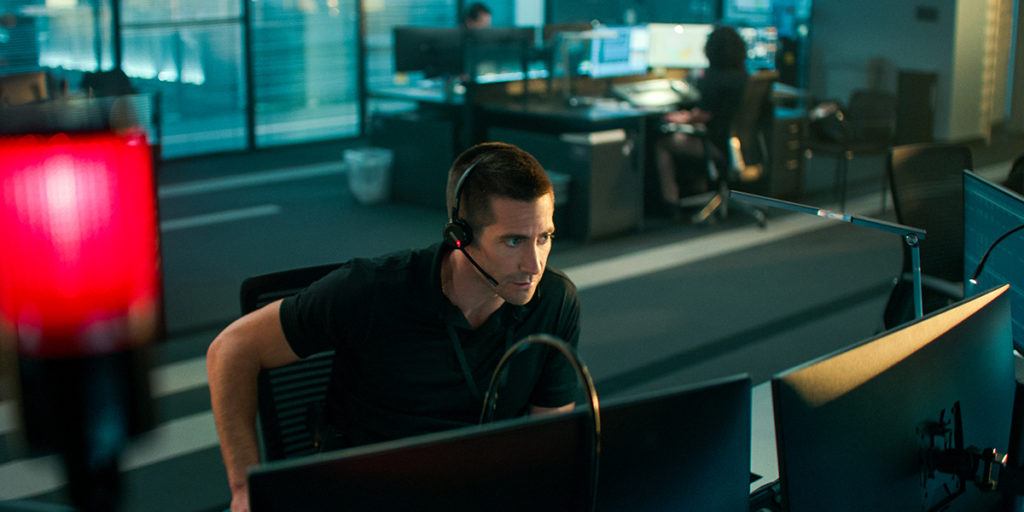The Guilty

Image courtesy TIFF.
Joe (Jake Gyllenhaal) is an officer working in a Los Angeles 911 center. He responds to all sorts of calls, ascertaining facts from often incomplete pictures to inform officers enroute to the scene. Sometimes people don’t want to reveal too much—one caller’s been robbed by a prostitute. As he picks up The Call—a woman named Emily (Riley Keough) pretends she’s talking to her daughter to avoid raising her abductor’s suspicion—a reporter from the Los Angeles Times hounds him for a quote about an impending hearing.
This is the standard “cops are complicated” story where our would-be antihero’s divorce and desire to violate court orders to have contact with a child no longer in his custody plays for sympathy to catch you off guard. It’s never this cute in real life and, in spite of Joe’s clear behavioral problems, the film, directed by Antoine Fuqua, wants us to see Joe in a positive light. I’m not sure Fuqua, whose 2001 feature TRAINING DAY likewise deals with police corruption, believes that corrupt officers feel any guilt—though they should.
One of the novelties of the movie is the list of callers we never see, including Peter Sarsgaard and Ethan Hawke, Paul Dano as the robbery victim and Bill Burr as the manager of a nightclub where gunfire breaks out. And while their involvement adds heft to the calls, save for Sarsgaard’s felonious Henry, they’re all unrelated to the central plot of the kidnapped woman.
The tension builds between the attempts to get more information—first from Emily, then from her daughter who remains at home, unattended—racing against time before they lose visibility as the van heads east on Interstate Highway 10 toward the California wildfires. But just as the suspense ratchets up, Joe’s increasingly irrational missteps don’t endear us to him—not to me, anyway.
I’m reminded of 2019’s UNCUT GEMS, in which Adam Sandler plays an aggravating jeweler with a penchant for making bad decisions, and trying to rectify them with even worse decisions. Between the Safdie Brothers’ sophomore TIFF entry and Fuqua’s remake of the 2018 Danish Sundance entry written and directed by Gustav Möller, the difference is that we watch Howard Ratner (Sandler) pay for his mistakes. Here, Gyllenhaal’s strung-out, rage-fueled, asthmatic Joe effectively agitates and escalates, but there’s nowhere for the story to go. Following the police brutality incidents of the past year, there’s no chance Joe gets off. Of course the right thing to do is to be accountable for his mistakes. That’s the bare minimum we expect. When life, or a movie, rewards the limits of your patience by not enraging you further, are you supposed to feel relieved? Should you?
How many other people died while Joe tied up 911 resources trying to save one purely to assuage his guilt?